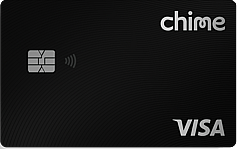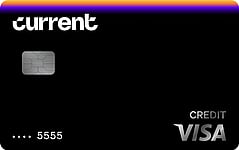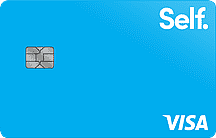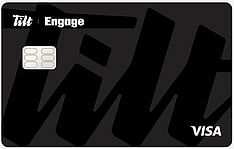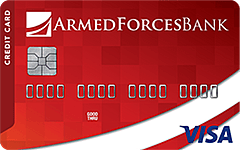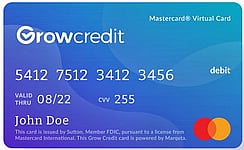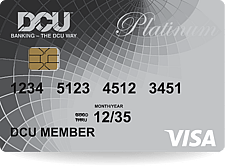Best Credit Cards for Bad Credit of March 2026
Many or all of the products on this page are from partners who compensate us when you click to or take an action on their website, but this does not influence our evaluations or ratings. Our opinions are our own.
Many or all of the products on this page are from partners who compensate us when you click to or take an action on their website, but this does not influence our evaluations or ratings. Our opinions are our own.
You can get a credit card with bad credit, but it won't be one of those cards you see advertised with rich rewards or exclusive perks. It will probably be fairly basic. That’s OK. You’re not going to be relying on this card forever. The idea is to use it to build or rebuild your credit, then move on to a better option. We believe the best credit cards for bad credit are secured cards.
| Credit card | Rating | Annual fee | Minimum deposit | Rec. credit score Rec. credit score | Learn more |
|---|---|---|---|---|---|
Apply Nowon Chime's website on Chime's website | Best for No credit check + easy account management | $0 | N/A | 300-669 (Poor - Fair) | Apply Nowon Chime's website on Chime's website |
Apply Nowon Capital One's website on Capital One's website | Best for Rewards + upgrading | $0 | $200 | 300-629 (Poor) | Apply Nowon Capital One's website on Capital One's website |
Apply Nowon Capital One's website on Capital One's website | Best for Low deposit | $0 | $49, $99 or $200 | 300-629 (Poor) | Apply Nowon Capital One's website on Capital One's website |
Apply Nowon Current's website on Current's website | Best for No credit check and no minimum security deposit | $0 (see terms) | $1 | 350-850 (Poor - Excellent) | Apply Nowon Current's website on Current's website |
Apply Nowon Firstcard's website on Firstcard's website | Best for International students and immigrants | $72-$144/year, depending on subscription plan | N/A | 300-689 (Poor - Fair) | Apply Nowon Firstcard's website on Firstcard's website |
Apply Nowon Self's website on Self's website | Best for No hard credit check | $0 intro first year, $25 thereafter† | $100 | 300-607 (Poor) | Apply Nowon Self's website on Self's website |
Apply Nowon Capital Bank's website on Capital Bank's website | Best for No credit check + lower deposit | $35 | $200 | 300-689 (Poor - Fair) | Apply Nowon Capital Bank's website on Capital Bank's website |
2026 Best credit card for building credit Apply Nowon Discover's website, on Discover's website, or call 800-347-0264 | Best for Rewards, bonus offer & upgrading | $0 | $200 | 300-629 (Poor) | Apply Nowon Discover's website, on Discover's website, or call 800-347-0264 |
Apply Nowon Tilt's website on Tilt's website | Best for Accessibility | $59 | N/A | 300-719 (Poor - Good) | Apply Nowon Tilt's website on Tilt's website |
Apply Nowon Capital Bank's website on Capital Bank's website | Best for No credit check + no annual fee | $0 | $300 | 300-850 (Poor - Excellent) | Apply Nowon Capital Bank's website on Capital Bank's website |
| Best for Adjustable credit limit | $0 | $300 | 300-689 (Poor - Fair) | ||
| Best for Building credit with subscriptions | $0 | N/A | 300-850 (Poor - Excellent) | ||
| Best for Low fees and interest | $0 | N/A | 300-850 (Poor - Excellent) |
Our pick for: No credit check + easy account management
Annual fee$0Minimum depositN/ARecommended credit scoreRegular APRN/ARewards rate1.5%CashbackIntro offerN/ARewards breakdown
1.5%Cash back on rotating categories with direct deposit.Card details
- The secured Chime Card™ is issued by The Bancorp Bank, N.A. or Stride Bank, N.A., Members FDIC, pursuant to a license from Visa U.S.A. Inc. and may be used everywhere Visa credit cards are accepted. Please see the back of your card for its issuing bank.
- No credit check to apply, no annual fees or interest⁴, and no minimum security deposit required.³ No stress! Additional terms apply.
- Use your Chime Card™ everywhere Visa credit cards are accepted, including on everyday purchases, such as gas and groceries.
- Help build your credit history with your own money. The money you move into the secured account is the amount you can spend on your card (no minimum deposit required!).³ Turn on Safer Credit Building² and have your monthly balance automatically paid on time. Chime will report your activities to Transunion®, Experian®, and Equifax®.
- Help increase your credit scores by an average of 71 points, with regular, on-time payments.¹
- Turn on transaction notifications to receive real-time transaction alerts. Then, use Chime’s instant in-app disable card feature to help prevent unauthorized activities.
- Live support 24/7 to assist you around the clock.
- Now you can use your Chime Card™ card fee-free at over 47,000 in-network ATMs at retailers like Walgreens®, CVS®, and more! Out-of-network ATM withdrawal fees may apply except at Moneypass ATMs in 7-Eleven® locations, or any Allpoint® or Visa Plus Alliance ATMs.
- Apply for a secured Chime Card™ once you have an active Chime Checking Account. See www.chime.com to learn more.
NerdWallet's take
The Chime Card™ has no minimum deposit requirement, charges neither an annual fee nor interest, doesn't require a credit check, and lets you automate your payments so you're never late. But to get it, you must be a Chime® banking customer.
Read full reviewProsInstead of a security deposit, the card is backed by the money in a linked account, which you can add to at any time. The card won't let you spend any more than you have in the account, and when your payment is due, you can have the money taken from the account automatically. In a way, it works like a reloadable debit card, but it also helps build credit. No credit check required to apply.
ConsThe safety precautions that make it an excellent tool for building credit can also get in the way of learning how to handle credit responsibly. Any card you graduate to will work quite differently. Chime has been the subject of multiple complaints related to the way it freezes customers' funds.
Our pick for: Rewards + upgrading
Apply Nowon Capital One's websiteon Capital One's websiteAnnual fee$0Minimum deposit$200Recommended credit scoreRegular APR28.99% Variable APRRewards rate1.5%-5%CashbackIntro offerN/ARewards breakdown
5%Cash back on hotels, vacation rentals and rental cars booked through Capital One Travel.1.5%Cash back on every purchase, every day.Card details
- No annual or hidden fees, and you can earn unlimited 1.5% cash back on every purchase, every day. See if you're approved in seconds
- Put down a refundable $200 security deposit to get at least a $200 initial credit line
- Building your credit? Using a card like this responsibly could help
- Enjoy peace of mind with $0 Fraud Liability so that you won't be responsible for unauthorized charges
- You could earn back your security deposit as a statement credit when you use your card responsibly, like making payments on time
- Be automatically considered for a higher credit line in as little as 6 months with no additional deposit needed
- Earn unlimited 5% cash back on hotels, vacation rentals and rental cars booked through Capital One Travel
- Monitor your credit score with CreditWise from Capital One. It's free for everyone
- Top rated mobile app
- View Rates & Fees
NerdWallet's take
The $0-annual-fee Capital One Quicksilver Secured Cash Rewards Credit Card is the rare card for bad credit that also offers solid rewards, along with several other features ideal for those with poor credit (FICO scores of 629 or lower).
Read full reviewProsYou'll earn 1.5% cash back on every purchase, which is as good as you'll find on a lot of cards for those with much higher credit scores. The card reports to all three credit bureaus, and Capital One will review your credit limit after six months to see if you're eligible for an increase. You may even eventually be able to upgrade to an unsecured card.
ConsThe $200 mininum upfront security deposit might be expensive for some.
Our pick for: Low deposit
Apply Nowon Capital One's websiteon Capital One's websiteAnnual fee$0Minimum deposit$49, $99 or $200Recommended credit scoreRegular APR28.99% Variable APRRewards rateN/AIntro offerN/ACard details
- No annual or hidden fees. See if you're approved in seconds
- Building your credit? Using the Capital One Platinum Secured card responsibly could help
- Put down a refundable security deposit starting at $49 to get at least a $200 initial credit line
- You could earn back your security deposit as a statement credit when you use your card responsibly, like making payments on time
- Be automatically considered for a higher credit line in as little as 6 months with no additional deposit needed
- Enjoy peace of mind with $0 Fraud Liability so that you won't be responsible for unauthorized charges
- Monitor your credit score with CreditWise from Capital One. It's free for everyone
- Get access to your account 24 hours a day, 7 days a week with online banking to access your account from your desktop or smartphone, with Capital One's mobile app
- Top rated mobile app
- View Rates & Fees
NerdWallet's take
If your credit is damaged but not necessarily destroyed, the Capital One Platinum Secured Credit Card is an excellent place to start rebuilding it.
Read full reviewProsMost secured cards typically require you to make a deposit equal to your credit line, and you have to come up with the whole deposit upfront. With the Capital One Platinum Secured Credit Card, however, you can get a credit limit of $200 for a deposit of $49, $99 or $200. You can also make your deposit in installments. And you can be automatically considered for a higher credit limit with no additional deposit in as little as six months.
ConsPeople with severely damaged credit, such as a bankruptcy on their credit report, might not qualify. You must have a checking or savings account.
Our pick for: No credit check and no minimum security deposit
Apply Nowon Current's websiteon Current's websiteAnnual fee$0 (see terms)Minimum deposit$1Recommended credit scoreRegular APRN/ARewards rateN/AIntro offerN/ACard details
- Get credit for every swipe - Just use your card, even at the ATM, to build credit with every swipe, earn points, and more.
- Build credit not debt - Build credit using only the money in your account and enable AutoPay so you never miss a payment.
- Credit for everyone - No matter what your credit history, there are no credit checks required to apply and build credit.
- Get paid up to 2 days faster - With direct deposit get your paycheck up to 2 days faster, so you get the money you need exactly when you need it.
- Earn points on swipes - Earn up to 7x the points on card swipes at over 14,000 participating merchants, then redeem them for cash back.
NerdWallet's take
This card is an affordable and accessible option for those wanting to establish or mend their credit history with little risk of getting into debt trouble.
Read full reviewProsBecause this card doesn't require a credit check, it's an ideal option for those trying to build or rebuild their credit scores. There's no minimum security deposit and no APR. Plus, with an eligible payroll deposit the card earns 1 point per dollar spent on eligible dining and grocery purchases.
ConsThere's no upgrade path to another card within Current's portfolio, so when you're ready for an unsecured card, you'll have to apply for another card. You might also incur fees when using this card, including foreign transaction and ATM fees.
Our pick for: International students and immigrants
Apply Nowon Firstcard's websiteon Firstcard's websiteAnnual fee$72-$144/year, depending on subscription planMinimum depositN/ARecommended credit scoreRegular APRN/ARewards rate1%-15%CashbackIntro offerN/ARewards breakdown
15%Merchant Cashback at 29,000 partner merchants.10%Random Cashback on all qualifying purchases.1%Unlimited Cashback with Firstcard Premium on all purchases on top of the two cashback offerings (Merchant Cashback and Random Cashback) all Firstcard members are currently enjoying.Card details
- Build credit faster, cheaper, and safer
- No credit checks and no credit history are required to open a credit card
- Accepts immigrants and internationals without an SSN - apply with a passport and visa.
- 0% APR. Don’t worry about overspending. What you deposit is what you can spend.
- No account minimum, no interest, and no overdraft fee
- Get up to 15% Merchant Cashback at 29,000 partner merchants
- Get up to 10% Random Cashback on all qualifying transactions
- Earn 4.00% APY with Firstcard Premium, 2.00% APY with Firstcard+, or 0.75% APY with Firstcard Standard on the money in your Firstcard
- Earn an additional 1% Unlimited Cashback with Firstcard Premium on all qualifying transactions on top of the two cashback offerings (Merchant Cashback and Random Cashback)
- Monitor your credit score right in the app
- Get an in-depth monthly credit report with Firstcard+ and Firstcard Premium
- Instant access to your virtual card once your account is approved and you add your virtual card to your phone’s digital wallet
- Your money is protected with Firstcard — automatically insured up to $250,000 by FDIC (backed by the U.S. government)
NerdWallet's take
The Firstcard® Secured Credit Builder Card has extremely low barriers to entry and also earns rewards.
Read full reviewProsThe Firstcard® Secured Credit Builder Card doesn't require a credit check, and it's even possible to get it without a Social Security number. Unlike other secured credit cards, there's no minimum required deposit amount, nor are there any interest charges.
ConsThere's an annual fee: $72-$144/year, depending on subscription plan. And if you want a higher-end version of the card, you'll have to pay for that.
Our pick for: No hard credit check
Apply Nowon Self's websiteon Self's websiteAnnual fee$0 intro first year, $25 thereafter†Minimum deposit$100Recommended credit scoreRegular APR27.49% Variable†Rewards rateNoneIntro offerN/ACard details
- With no credit check or prior credit required, anyone can start building credit. Fund your card with a minimum security deposit of $100 and use it anywhere Visa® is accepted in the U.S. Build credit by making on-time payments and maintaining a low credit utilization ratio. Every on-time payment helps build credit history.
- If you don’t have the $100 security deposit today, consider a Credit Builder Account² starting at $25 a month⁴ . Consistent, on-time payments help you build credit and build savings to secure the secured Self Visa® Credit Card³.
- †$0 annual fee for the first year only, $25 annual fee thereafter. Variable APR of 27.49%. Offer valid for new customers only.
- *The secured Self Visa®Credit Card is issued by Lead Bank, Sunrise Banks, N.A., or First Century Bank, N.A., each Member FDIC.
- ²Credit Builder Accounts & Certificates of Deposit made/held by Lead Bank, Sunrise Banks, N.A., First Century Bank, N.A., each Member FDIC. Subject to credit approval.
- ³Qualification for the secured Self Visa® Credit Card is based on meeting eligibility requirements, including income and expense requirements and establishment of security interest. Criteria Subject to change.
- ⁴$25/mo, 24 mos, 15.92% APR; $35/mo, 24 mos, 15.69% APR; $48/mo, 24 mos, 15.51% APR; $150/mo, 24 mos, 15.82% APR. See self.inc/pricing
NerdWallet's take
The secured Self Visa® Credit Card offers those with no credit a way to establishing a credit history without some of the obstacles. It doesn't require a steep upfront security deposit or a hard credit check.
Read full reviewProsThe minimum deposit is just $100, lower than on most secured cards. There's no hard credit check, either. This card also has solid credit-building features. It reports payments to all three major credit bureaus which helps to establish a credit history. And, it's one of a few secured credit cards that offers a path to upgrade to an unsecured credit card with the same issuer once you can qualify.
ConsThere's an annual fee of $0 intro first year, $25 thereafter†. The security deposit requirement is also low, but some credit cards offer the flexibility to set your own amount.
Our pick for: No credit check + lower deposit
Apply Nowon Capital Bank's websiteon Capital Bank's websiteAnnual fee$35Minimum deposit$200Recommended credit scoreRegular APR23.89% Variable APRRewards rate1%-10%CashbackIntro offerN/ACard details
- Use your Opensky card to pay for TurboTax and get up to $20* on us.
- Earn up to 10% cash back on everyday purchases
- No credit check required – 89% approval rate with zero credit risk to apply!
- Boost your credit score fast—2 out of 3 opensky® cardholders see an average increase of 47 points after 6 months
- Track your progress with free access to your FICO® score in our mobile app
- Build your credit history with reporting to all three major credit bureaus: Experian, Equifax, and TransUnion
- Seamless payments—add your card to Apple Pay, Google Pay, and Samsung Pay
- Start with just $200—secure your credit line with a refundable deposit
- Fast and easy application—apply in minutes with our mobile-first experience
- Flexible payment options—pick a due date that works for you
- More time to fund—spread your security deposit over 60 days with layaway
- Activation of the TurboTax offer is required prior to purchase to qualify for a reward. To activate, click the offer in Opensky Rewards, available through the Opensky credit card mobile app or website. Offer valid 12/1/25–4/18/26. Additional TurboTax terms apply; see TurboTax reward details for more information. See Opensky Rewards Terms & Conditions for details on reward timing.
- View Rates & Fees
NerdWallet's take
The opensky® Secured Visa® Credit Card is a strong option for people struggling to build or rebuild credit, as well as for those without access to traditional banking services. Click 'apply now' to see additional terms.
Read full reviewProsUnlike most other secured cards, the opensky® Secured Visa® Credit Card doesn’t require a credit check, so even people with badly damaged credit may be able to qualify. (You’ll still need to meet income standards, however.) Also setting this card apart from other secured cards: You don’t need a bank account. You can make your deposit and pay your bill by debit card, wire transfer, check or money order.
ConsThe card charges an annual fee. Also, your options for upgrading your account to an unsecured card are limited.
2026 Best credit card for building credit
Apply Nowon Discover's website,on Discover's website, or call 800-347-0264Annual fee$0Minimum deposit$200Recommended credit scoreRegular APR26.49% Variable APRBalance transfer intro APR10.99% intro APR on balance transfers for 6 monthsRewards rate1%-2%CashbackIntro offerCashback Match™Rewards breakdown
2%Cash back at Gas stations on up to $1,000 in combined purchases each quarter, automatically.2%Cash back at Restaurants on up to $1,000 in combined purchases each quarter, automatically.1%Cash back on all other purchases.Card details
- No credit score required to apply. No Annual Fee.
- Your secured credit card requires a refundable security deposit, and your credit line will equal your deposit amount, starting at $200. Bank information must be provided when submitting your deposit.
- Automatic reviews starting at 7 months to see if we can transition you to an unsecured line of credit and return your deposit.
- Earn 2% cash back at Gas Stations and Restaurants on up to $1,000 in combined purchases each quarter, automatically. You'll still earn unlimited 1% cash back on all other purchases.
- INTRO OFFER: Unlimited Cashback Match for all new cardmembers—only from Discover. Discover will automatically match all the cash back you’ve earned at the end of your first year! There’s no minimum spending or maximum rewards.
- Get an alert if we find your Social Security number on the dark web. Activate for free.
- Terms and conditions apply.
- View Rates & Fees
NerdWallet's take
The Discover it® Secured Credit Card has long been a NerdWallet favorite, for good reason. The rewards and other features on this secured card for bad credit are better than those on many unsecured cards for good credit.
Read full reviewProsThe Discover it® Secured Credit Card may be the best credit card available for people with bad credit. Not only does it have an annual fee of $0, but it also gives rewards: 2% cash back on up to $1,000 worth of spending per quarter on restaurants and gas, and 1% on all other spending. Handle your account responsibly for seven months, and Discover will review your account for a possible upgrade to an unsecured card.
ConsThe initial deposit must be paid with a bank account, so if you don’t have access to traditional financial services, you may be out of luck.
Our pick for: Accessibility
Annual fee$59Minimum depositN/ARecommended credit scoreRegular APR28.24%-33.24% VariableRewards rate1%-10%CashbackIntro offerN/ARewards breakdown
1%Cash back at select national merchants.Card details
- 1-10% cash back at select national merchants
- See if you're pre-approved instantly without impacting your credit score. Be considered for all three Tilt cards to maximize chances of approval
- No Credit Score? No problem. Credit history isn't required for approval
- Credit limit increases in as early as 4 months for qualified borrowers
- Build credit alongside hundreds of thousands of Tilt card members
- Tilt reports to all 3 major credit bureaus
- Pay with ease with a contactless card or on your phone using Apple Pay, Google Pay, or Samsung Pay
- Zero liability fraud coverage
- Card issued by WebBank
- View Rates & Fees
NerdWallet's take
The Tilt Engage isn't the most affordable card on this list, but it may be the most accessible, and it still has a lot of upside when compared with other unsecured cards for bad credit.
Read full reviewProsThe card's proprietary underwriting process means it might not rely solely on credit scores to determine eligibility and may opt to also evaluate real-time spending data like your income and expenses. It reports to all three major credit bureaus and features multiple paths to a potential credit limit increase. You can also earn modest rewards with specific merchants.
ConsThere's a $59 annual fee, which isn't outrageous but does make the card costly to keep long term, especially since there's no way to upgrade to a better card from Tilt when you're ready. Also note that in order to have factors like your real-time spending data considered, you may need to link your bank account.
Our pick for: No credit check + no annual fee
Apply Nowon Capital Bank's websiteon Capital Bank's websiteAnnual fee$0Minimum deposit$300Recommended credit scoreRegular APR28.24% Variable APRRewards rate1%-10%CashbackIntro offerN/ACard details
- Use your Opensky card to pay for TurboTax and get up to $20* on us.
- No annual fee – keep more money in your pocket!
- No credit check required – 89% approval rate with zero credit risk to apply!
- Earn up to 10% cash back on everyday purchases
- Boost your credit score fast—2 out of 3 opensky® cardholders see an average increase of 47 points after 6 months
- Track your progress with free access to your FICO® score in our mobile app
- Build your credit history with reporting to all three major credit bureaus: Experian, Equifax, and TransUnion
- Seamless payments—add your card to Apple Pay, Google Pay, and Samsung Pay
- Start with as little as $300 – Secure your line with a refundable security deposit
- Fast and easy application—apply in minutes with our mobile-first experience
- Flexible payment options—pick a due date that works for you
- More time to fund—spread your security deposit over 60 days with layaway
- Activation of the TurboTax offer is required prior to purchase to qualify for a reward. To activate, click the offer in Opensky Rewards, available through the Opensky credit card mobile app or website. Offer valid 12/1/25–4/18/26. Additional TurboTax terms apply; see TurboTax reward details for more information. See Opensky Rewards Terms & Conditions for details on reward timing.
- View Rates & Fees
NerdWallet's take
Like opensky's regular card, the opensky® Plus Secured Visa® Credit Card doesn't require a credit check or a bank account. But this one also doesn't charge an annual fee — although the minimum security deposit and the interest rate are both significantly higher.
Read full reviewProsThe benefits are largely the same as with the annual-fee opensky card: The issuer doesn’t run a credit check, and you can make your deposit and pay your bills with a debit card, wire transfer, check or money order, making it an option for those without a traditional bank account. On top of that, there's no annual fee.
ConsThe minimum security deposit on this card is higher than on opensky's standard card. The APR is also considerably higher, so avoid carrying a balance. Also, your options for upgrading to an unsecured card are limited.
Our pick for: Adjustable credit limit
Annual fee$0Minimum deposit$300Recommended credit scoreRegular APR25.99% Fixed APRRewards rateN/AIntro offerN/ACard details
- Deposit an amount from $300 up to $3,000 into a Credit Builder Savings Account which will set the credit limit you request.
- Increase your credit limit by adding funds in increments of $50 or more to the Credit Builder savings account
- No application fee
- No over-the-limit fee
- Automatic reporting to the three major credit bureaus to help you build or repair your credit history
- With improvements to your credit score, graduate to an Unsecured Credit Card
NerdWallet's take
The Credit Builder Secured Visa® Credit Card from Armed Forces Bank isn't fancy, but that's OK. There's no annual fee, and you can add to your security deposit (and thus your credit limit) at any time.
Read full reviewProsThis no-fuss secured credit card has an annual fee of $0 and allows for credit lines of up to $3,000. You must open the account with at least a $300 deposit in your Credit Builder savings account, but you can add to your limit by depositing more (in $50 increments). The card reports to all three credit bureaus. And no, despite the bank's name, you don't need any military affiliation.
ConsThe $300 minimum initial deposit is higher than most cards require. Though the card has no annual fee, there's a $5 quarterly charge if you want a bill sent in the mail rather than receiving electronic statements.
Our pick for: Building credit with subscriptions
Annual fee$0Minimum depositN/ARecommended credit scoreRegular APRNoneRewards rateNoneIntro offerN/ACard details
- Connect a bank account to apply for a Grow Credit interest-free Mastercard.
- Signing up is easy and completely free.
- Use your Grow Credit Mastercard to pay for your existing subscriptions or browse for new ones.
- Just sit back, relax and watch your credit score grow!
- Grow Credit is not taking new applications at this time.
NerdWallet's take
The Grow Credit Mastercard helps you build credit through qualifying subscriptions and bill payments you're already making. There's no hard credit check and no interest charges.
Read full reviewProsYou can use the card to pay for qualifying monthly subscriptions and/or bill payments, though your spending limit on the card will depend on your membership tier with Grow Credit. Eligible payments include streaming services like Netflix and Spotify, as well as certain wireless phone providers. Your bill must be paid in full each month, so you can't carry a balance and therefore won't pay interest. The card reports to all three major credit bureaus.
ConsThis card rates lower than other options on this page because of its limited usability. It can help you build credit, but beyond subscriptions, you can't put so much as a pack of gum on it. There are multiple membership tiers, but all of them charge a monthly fee.
Our pick for: Low fees and interest
Annual fee$0Minimum depositN/ARecommended credit scoreRegular APR15.25%, Variable APRRewards rateN/AIntro offerN/ACard details
- Could help with building or rebuilding your credit – with responsible use
- No annual, balance transfer, foreign transaction, or cash advance fees
- Fraud notifications and the ability to freeze/unfreeze your credit card
- Great Visa benefits on travel, live music, and more
NerdWallet's take
If you're trying to build credit, it's best not to carry a balance on your credit card. But if you have to do so, the DCU Visa® Platinum Secured Credit Card might be the least painful way.
Read full reviewProsThe card has no annual fees, foreign transaction fees, cash advance fees or balance transfer fees, and its ongoing APR is relatively low for a card aimed at the credit-building population. Your account is secured with funds you put in a savings account with Digital Federal Credit Union. That makes it possible to get a really high credit limit if you've got a deposit to match, which in turn would allow you to use this card more like a "regular" card.
ConsThe $500 minimum deposit is quite pricey for a secured card and drags down the rating of what is an otherwise solid option. You also have to be a member of Digital Federal Credit Union, although anyone can join through membership in a partner organization.
See more from Chime®
Chime says the following:
The Chime Card™ is issued by The Bancorp Bank, N.A. or Stride Bank, N.A., pursuant to a license from Visa U.S.A. Inc. and may be used everywhere Visa credit cards are accepted. Please see the back of your card for its issuing bank.
Based on a representative study conducted by Experian® in Sept 2025, the top 10% of members who made their first purchase with Credit Builder, an earlier version of Chime Card™, between April and August 2024, observed a FICO® Score 8 increase of 71 points after approximately 8 months. Average increase of 28 points across all participants in the study. Credit score improvement not guaranteed. Paying on time may increase your score, while late payment may decrease your score. Other credit activity can impact your score. Credit score is one of many factors creditors may consider in evaluating credit applications.
On-time payment history may have a positive impact on your credit score. Late payment may negatively impact your credit score. Chime will report your activities to Transunion®, Experian®, and Equifax®. Impact on your credit may vary, as Credit scores are independently determined by credit bureaus based on a number of factors including the financial decisions you make with other financial services organizations.
Money added to the Chime Card™ will be held in a secured deposit account as collateral for your Chime Card™, and you can spend up to this amount. You can use money deposited in your Secured Deposit Account to pay off your charges at the end of every month.
Out-of-network ATM withdrawal and over the counter advance fees may apply.
SpotMe® on Credit is an optional, no interest / no fee overdraft line of credit tied to the Secured Deposit Account available to qualifying members with an active Chime Card Account. To qualify for the SpotMe on Chime Card service, you must receive $200 or more in qualifying direct deposits to your Chime® Checking Account each month and have activated your physical secured Chime Visa® Credit Card or Chime Visa® Debit Card. Qualifying members will be allowed to overdraw their Secured Deposit Account up to $20, but may later be eligible for a higher limit of up to $200 or more based on Chime account history, direct deposit frequency and amount, spending activity and other risk-based factors. The SpotMe on Chime Card Limit will be displayed within the Chime mobile app and is subject to change at any time, at Chime’s or its banking partners’ discretion. Although Chime does not charge any overdraft fees for SpotMe on Chime Card, there may be out-of-network or third-party fees associated with ATM transactions and fees associated with OTC cash withdrawals. SpotMe on Chime Card won’t cover non-card transactions. SpotMe on Chime Card Terms and Conditions.
With a qualifying direct deposit, earn 1.5% cash back on eligible secured Chime Visa® Credit Card purchases.
What to look for in a credit card for bad credit
When you have bad credit, the primary purpose of getting a credit card is not to boost your spending power. It’s to improve your credit. So when choosing a credit card for bad credit, pay attention to these factors.
Eligibility criteria
Secured or unsecured
Credit bureau reporting
Fees
Upgrade path
Security deposits: What you need to know
As noted earlier, secured credit cards require a cash deposit to open the account. Some cards have a minimum deposit of $200 or more. We acknowledge that locking up that much money in a credit card deposit can be a significant financial hurdle for people living paycheck to paycheck. But if you can swing it, we believe that a secured card is the best option for most people with bad credit.
Most notably, the security deposit is completely refundable if you close your card account in good standing or upgrade to an unsecured card. Some issuers even pay interest on your security deposit. The deposit reduces the risk to the card issuer, which is what makes it possible to issue cards to people with bad credit. By contrast, unsecured cards for bad credit often deal with risk by charging high fees that can’t be recouped. Further, those fees might represent just as much of an out-of-pocket cost for a new cardholder as a security deposit.
Some secured credit cards do not have a minimum deposit amount. Your account is instead secured by the balance you have in a linked account, such as a checking or savings account. And some cards have flexible deposit requirements. The Capital One Platinum Secured Credit Card, for example, allows you to pay your security deposit in installments, and some applicants may qualify for a $200 credit limit with just a $49 or $99 security deposit (see rates and fees).
Using a credit card to improve your credit
Credit scores are essentially a measure of how likely a person is to repay money they’ve borrowed. The higher a person’s score, the greater the likelihood that they will repay what they owe. Improving your credit involves demonstrating that you can handle credit responsibly — and using a credit card is one of the best ways to do that.
Pay your credit card bill on time
Don’t max out your credit card
Keep old credit card accounts open
Keep new credit applications to a minimum
Track your progress
Next steps: After your credit has improved
Once your credit has improved, you’ll probably start thinking about what to do with the credit card you got when you had bad credit. Here are some options:
Upgrade to another card from the same issuer
When you upgrade to another card by way of a product change, you can preserve the credit history you built up with the previous card. If the upgrade involves moving from a secured card to an unsecured card, you can get your deposit back, too. Keep in mind, though, that the sign-up bonuses that come with many rewards credit cards, some of which are worth hundreds of dollars, are not available to customers who upgrade. The only way to get a sign-up bonus is to apply for a card outright and meet the spending requirements.
Keep the card open and apply for a new card elsewhere
If your card’s issuer doesn’t have attractive upgrade options, you might still want to keep the card open, even if you apply for a better card somewhere else. Doing so keeps the credit limit on that card, which can lower your overall credit utilization. And credit scoring formulas like lengthy, active credit histories; if you cancel the card, that lowers the average age of your open accounts.
Close the card and apply elsewhere
Yes, we just discussed why it makes sense to keep your old card account open. But sometimes closing the account is the right move. If your old card is a secured card, you’ll continue to have money locked up in a security deposit. If the card charges fees, you’ll continue paying those. Say you have a credit card with a $49 annual fee and a $12.50 monthly fee, a not-uncommon fee structure for an unsecured card for bad credit. That would mean it costs nearly $200 a year to use the card. If the card has a small credit limit and few perks, it may make sense to close the account and save yourself a ton of money in the long run.
Ask our credit card experts
 Kenley Young
Kenley Young
WHAT'S A COMMON MISCONCEPTION ABOUT CREDIT CARDS AND BAD CREDIT?
There's an idea out there that credit cards for bad credit are all very expensive ... but they don't have to be. Any credit card can be expensive if you carry a balance, of course, because then you have to pay interest. But just because you have bad credit doesn't mean you're stuck paying outlandish fees. There are plenty of new options. Predatory "fee harvesters" aren't your only choice.

Kenley Young
Managing Editor
 Melissa Lambarena
Melissa Lambarena
WHAT'S A COMMON MISCONCEPTION ABOUT CREDIT CARDS AND BAD CREDIT?
You don’t need to maintain a balance on a credit card at all times to build credit, but you do need to keep it open and active to stay on track with that goal. You can accomplish this by using the card to pay for a monthly recurring expense that can be paid off in full every month to avoid interest charges.
Melissa Lambarena
Senior Writer & Content Strategist
 Sara Rathner
Sara Rathner
WHAT'S A COMMON MISCONCEPTION ABOUT CREDIT CARDS AND BAD CREDIT?
There's no such thing as a joint credit score. It's always yours and yours alone, so you can’t depend on anyone else to build your credit for you. (However, if you have a joint loan with your spouse, late payments can affect both of your scores.)

Sara Rathner
Senior Writer/Spokesperson
 Paul Soucy
Paul Soucy
WHAT'S A COMMON MISCONCEPTION ABOUT CREDIT CARDS AND BAD CREDIT?
Building credit with a credit card isn’t complicated. Get a card, use the card, keep your balance relatively low, pay the bill on time and in full, and be patient. Don’t overthink it.

Paul Soucy
Director of Content
Frequently asked questions
What does "bad credit" mean in terms of credit cards?
Bad credit is generally defined as a credit score below 630 on a scale of 300 to 850. Credit scores measure how safe or risky it is to lend to someone. The higher the risk, the lower the score. If you’ve made mistakes with credit — missing multiple payments, maxing out accounts, having bills turned over to collection agencies, your score can drop into the bad-credit range. Also, if you’re new to credit, you might not have a credit score at all, which in many ways is functionally equivalent to bad credit — you’re considered a higher risk because you haven’t yet demonstrated your ability to handle borrowed money.
Can I get a credit card if I have bad credit?
Multiple credit card issuers have cards specifically designed for people with bad credit. (They’re often advertised as ideal for “rebuilding” credit.) These are generally “starter cards” — they don’t offer much in the way of rewards or perks, they charge high interest rates, and some of them come with steep fees. NerdWallet generally recommends secured credit cards to people with bad credit. Secured cards require you to put down a cash deposit that the card issuer holds as collateral in case you don’t pay your bill. You get that money back when you close your account in good standing or upgrade to a regular card.
Is a secured credit card my only option if I have bad credit?
A secured card isn't your only option for bad credit — but it's usually your best option. Some card issuers offer regular “unsecured” cards for people with bad credit. These don’t require a cash deposit, but they tend to come loaded with high fees. That’s money you can’t get back, unlike the deposit on a secured card.
What should I look for in a credit card for bad credit?
When looking for a credit card for bad credit, be realistic. You’re not going to find one with rich rewards or lavish perks. You’ll most likely have a high interest rate (although if you pay your bill in full every month, you won’t be charged interest). And your credit limit will likely be small; secured cards usually give you a credit line equal to your deposit. Beyond that, look at:
Fees. Look for annual fees of less than $50, and avoid cards that charge maintenance fees, application fees or processing fees. Many good secured cards don’t charge an annual fee at all.
Reporting to credit bureaus. Presumably, you want to use your card to build credit so you can qualify for better cards or loans down the road. But using your card can improve your credit only if your payments are reported to the credit bureaus, the companies that compile the credit reports that form the basis of credit scores. Look for a card that says it reports to all three major credit bureaus (Equifax, Experian and TransUnion).
Upgrade options. Ideally, after you’ve improved your credit, you could upgrade your account to a better card. That allows you to keep the account open — which is good for your credit score — while getting your deposit back. Many issuers of cards for bad credit have outstanding upgrade options. Others focus only on people with lower scores and might not have much to offer. The lack of an upgrade option shouldn't be a dealbreaker, but a clear upgrade path is a point in favor of some cards.
What do I need to apply for a credit card for bad credit?
You generally need to be at least 18 years old and have a Social Security number to be considered for a credit card. You’ll need to show that you have income, and in most cases (but not all), you must have a bank account. While “bad credit” by itself is obviously not a disqualifier when it comes to cards for bad credit, some issuers might still deny your application if your credit report shows serious problems such as a bankruptcy, a civil judgment or liens against you. Read more about qualifying for a card for bad credit.
How we choose the best credit cards
Our team of credit card experts has developed a rigorous methodology to determine how much value a card delivers and how it stacks up against its competitors.
400+
Cards reviewed
400+
Cards reviewed
NerdWallet’s experts have reviewed more than 400 cards, from the most popular options at the biggest banks to store cards to niche cards from startups and small issuers.
8
Categories scored
8
Categories scored
Credit cards are so diverse that properly rating them with a single formula is impossible. We’ve built eight rubrics, plus variations, so we can score each card on what matters.
50+
Data points analyzed
50+
Data points analyzed
Our ratings consider not just a card’s rates, fees, rewards and perks, but also how easy or hard it is to get that card, manage it and enjoy its advertised benefits.
Star rating categories
What you want out of, say, a cash back credit card is fundamentally different from what you’re looking for in a balance transfer card or a card for building credit. That’s why we have different scoring models that put weight on different features.
Cash back cards
General travel cards
Balance transfer cards
Branded airline cards
Branded hotel cards
Credit builder cards
College student cards
Small business cards
NerdWallet's Credit Cards team selects the best credit cards for bad credit based on overall value, as evidenced by star ratings, as well as suitability for specific kinds of consumers. Factors in our evaluation include annual and other fees, deposit requirements for secured cards (both the minimum and maximum allowed), interest rates, whether a card offers an option to upgrade to an unsecured account, the availability of free credit scores and other credit education and tools, reporting to credit bureaus, and other noteworthy features such as a rewards program or the ability to qualify without a credit check. Because different consumers can have markedly different needs, preferences and spending habits, we recognize that there is rarely a single credit card that is "best" for everyone. That's why this page includes a variety of options to suit an array of circumstances. Also, a single card is eligible to be chosen as among the "best" in multiple categories.
Our star ratings provide a quick way to compare credit cards. We assess the features of a card, score those features according to how they compare with other options on the market, and assign the card a rating of 1 to 5 stars based on those features. In general, a card that rates 4.5 stars will be a better value for more people than a card that rates 4.0 stars. However, the 4.0 card might be better than the 4.5 card for an individual consumer depending on that person’s circumstances. Further, ratings are only comparable within categories. If you're looking for rewards, for example, a 3.5-star cash back card will be of greater value than a 5.0-star balance transfer card or a 4.5-star credit-builder card. Star ratings are an important consideration in which cards appear on our "best" pages, but they are not the sole determining factor. Learn how NerdWallet rates credit cards.



